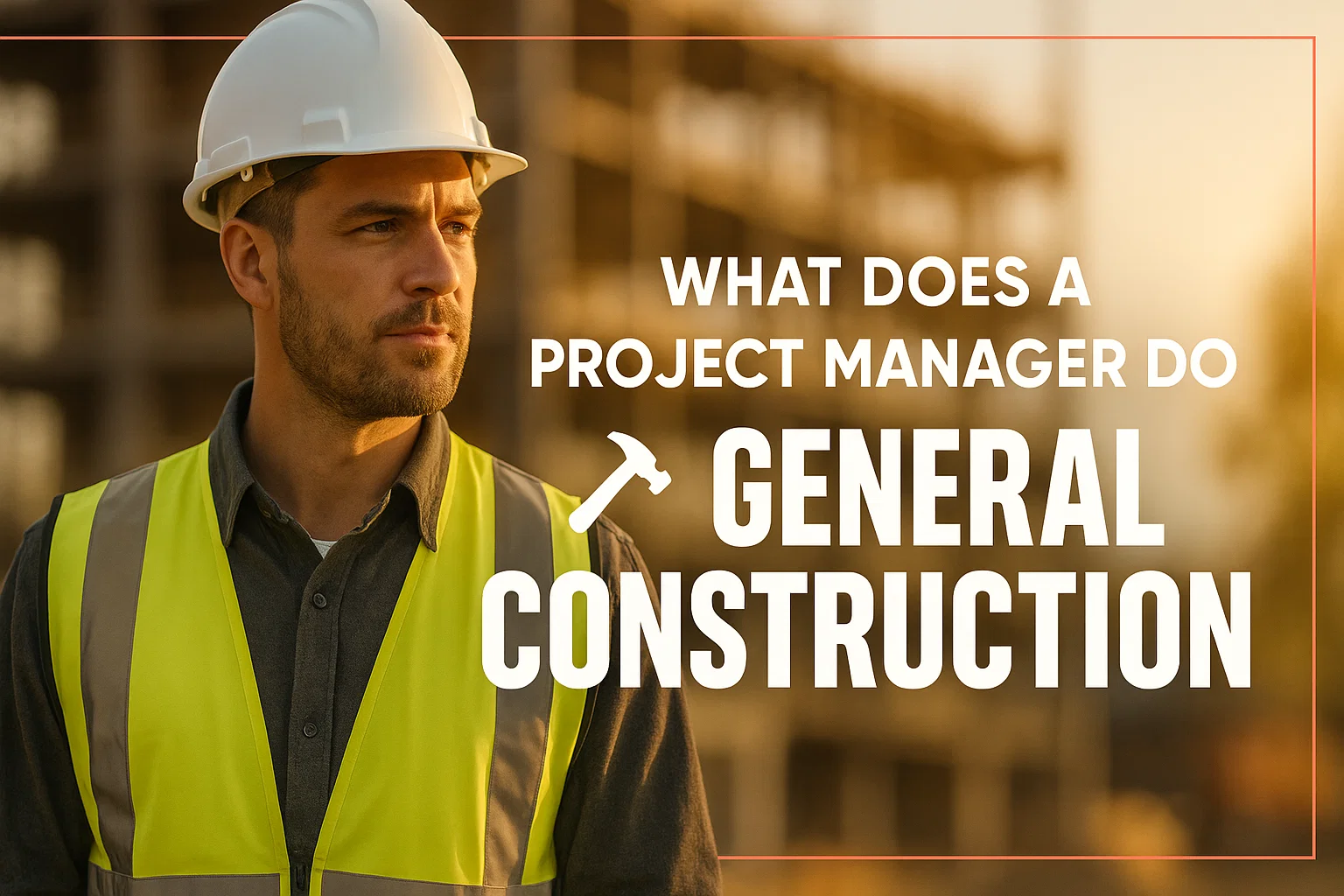The project manager is the key figure in the construction process for carrying out construction projects, ranging from individual residences to large-scale public infrastructure. Demands are plentiful for construction project managers who manage all aspects of the construction process to ensure that a project is on time, on budget, and of acceptable quality. This complete guide discusses the role of a project manager in a construction company, including the duties and skills.
Construction Project Manager Job Description
A construction manager is responsible for planning and seeing to it that a building project is completed. They are tasked with a variety of functions including planning, budgeting, scheduling, allocation of resources, quality management, and interaction with stakeholders. They are the single central point of responsible control for project execution when you make the key decisions that result in the quality project.
What Does a Construction Project Manager Do?
A construction project manager is the professional in charge of overseeing all aspects of a construction project start from its beginning to the planning and execution of the project, till its closure and wrapping up. They are focused on safely and optimally delivering the project following contractual and regulatory obligations.
Project Planning
- Creates detailed project plans
- Identifying goals, projects, time frames and resources.
- Divides the project into clear tasks.
- Establishes milestones to track progress.
- Confirms that all planning is consistent.
- Client desires and legal and regulatory requirements.
Budget and Cost Management
- Plans and keeps an eye on project costs to ensure cost-effective operations.
- Forecasts costs and tracks costs, taking cost-effective decisions to keep cost within budget.
- Directs project bids, conducts negotiations with subcontractors and suppliers.
Scheduling and Time Management
- Prepares detailed project schedules
- Deliverable timetable_ranges and specifics.
- Assigns resources and schedules to meet deadlines
- Tracks progress and modifies schedules.
Team Leadership and Coordination
- Hires, organizes, and trains members of the project team, including laborers, and maintenance technicians, and project engineers.
- Assigns roles, establishes aims and keeps effective communication amongst all team members
- Holds frequent meetings to report on progress and to address problems
Quality Control and Compliance
- Assists in verifying design and drawings for construction relative to accuracy and constructability.
- Inspecting work done to ensure the work is to the company’s safety standard and building codes.
- Performs site visits and implements safety guidelines.
Stakeholder Communication
- Serves as the single point of contact with clients, architects, engineers, contractors and authorities having jurisdiction.
- Updates clients and stakeholders regarding project status, issues and successes.
- Prepares and processes submittal requests for information, change order submissions, and submission of progress reports.
Risk Management
- Identifies risks and recommends mitigation plans.
- Settle disputes and solve unanticipated problems on time to ensure the project proceeds on time.
Contract Administration
- Prepares, reviews, and oversees contracts with clients, subcontractors and vendors.
- Ensures that the Company meets all contractual requirements and claims or changes as required.
Resource Allocation
- Plays a key role in distributing labor, equipment, and resource assignments
- Maximizes project efficiency and overall profitability.
- Dynamic distribution of resources based on project demand and progress.
Project Closeout
- Plans and executes punch lists, final inspections, and handover to the client while supervising for lists.
- All documentation is completed; all lessons learned are documented for subsequent projects.
Construction Project Manager vs. Construction Manager
| Aspect | Responsibilities (Strategic) | Duties (Operational) |
| Scope | Overarching project outcomes and objectives | Specific tasks to achieve those outcomes |
| Examples | Ensuring project stays within budget and on schedule | Approving invoices, scheduling inspections |
| Focus | Leadership, decision-making, and accountability | Execution, supervision, and administration |
| Impact | Long-term project success and stakeholder satisfaction | Day-to-day progress and problem resolution |
| Scope | Overarching project outcomes and objectives | Specific tasks to achieve those outcomes |
| Examples | Ensuring project stays within budget and on schedule | Approving invoices, scheduling inspections |
In a construction project, the project manager has the responsibility for ensuring that a construction manager is part of the crew of people, or that outside consulting is provided, and managerial aspects of the construction project.
Essential Skills and Qualifications
- Demonstrated leadership and communication skills
- Ability to budget, schedule and manage contracts
- Detailed knowledge of construction and building materials and standards
- Ability to solve problems and analyse risk
- Strong ability to multitask and work under deadlines.
- Previous experience with construction management software and digital collaboration tools
The vast majority of construction project managers have studied construction management, civil engineering, or a related field, but have several years of experience in the construction industry as well as certificates of practical skills gained in the years.
Why Project Managers are Important for Construction Firms?
The existence of qualified project management is a key factor in the growth and status of a construction company. Construction managers are valuable to construction companies for a number of reasons:
Budget Management – Monitor spend closely, predict costs, and implement cost management controls.
On Time Finishing: Have detailed cadence plans to prevent slips and finish work on time.
Quality Assurance: Quality is ensured through strict compliance of our products with all regulatory requirements, maintained through constant monitoring of our end product.
Better Client Relations: Maintain your connections, because they generally get you referrals and repeat business.
Reliability: Increase the number of new clients and contracts with higher value.
Competitive advantage: faster project management which enables companies to work on bigger or more complicated projects, expand their operations, and stay up-to-date with a competitive market.
Conclusion
A construction project manager is a complex figure of the project delivery team. Their competence guarantees timely project development and increased maintenance, such as assembling, fixing and testing devices. Construction project managers help make sure the project is completed efficiently on schedule, on budget, and to the client’s satisfaction.
FAQs
What is the difference between a construction manager and a construction project manager?
Job Description Role of a Project Manager and a Site Manager: A project manager looks after the project from the beginning to the end, right from organizing to budgeting, to meeting the stakeholder or owner’s needs, while a site manager works on the organization and construction work at the work site.
What tools do construction project managers use?
They use PM software for scheduling, budgeting, document control and communication, and digital tools for reporting and interaction.
Can a construction project manager handle multiple projects at once?
The answer is yes and no, depending on how experienced the project manager is.Some experienced project managers are managing multiple projects at once, particularly in bigger companies or where the projects are small.





